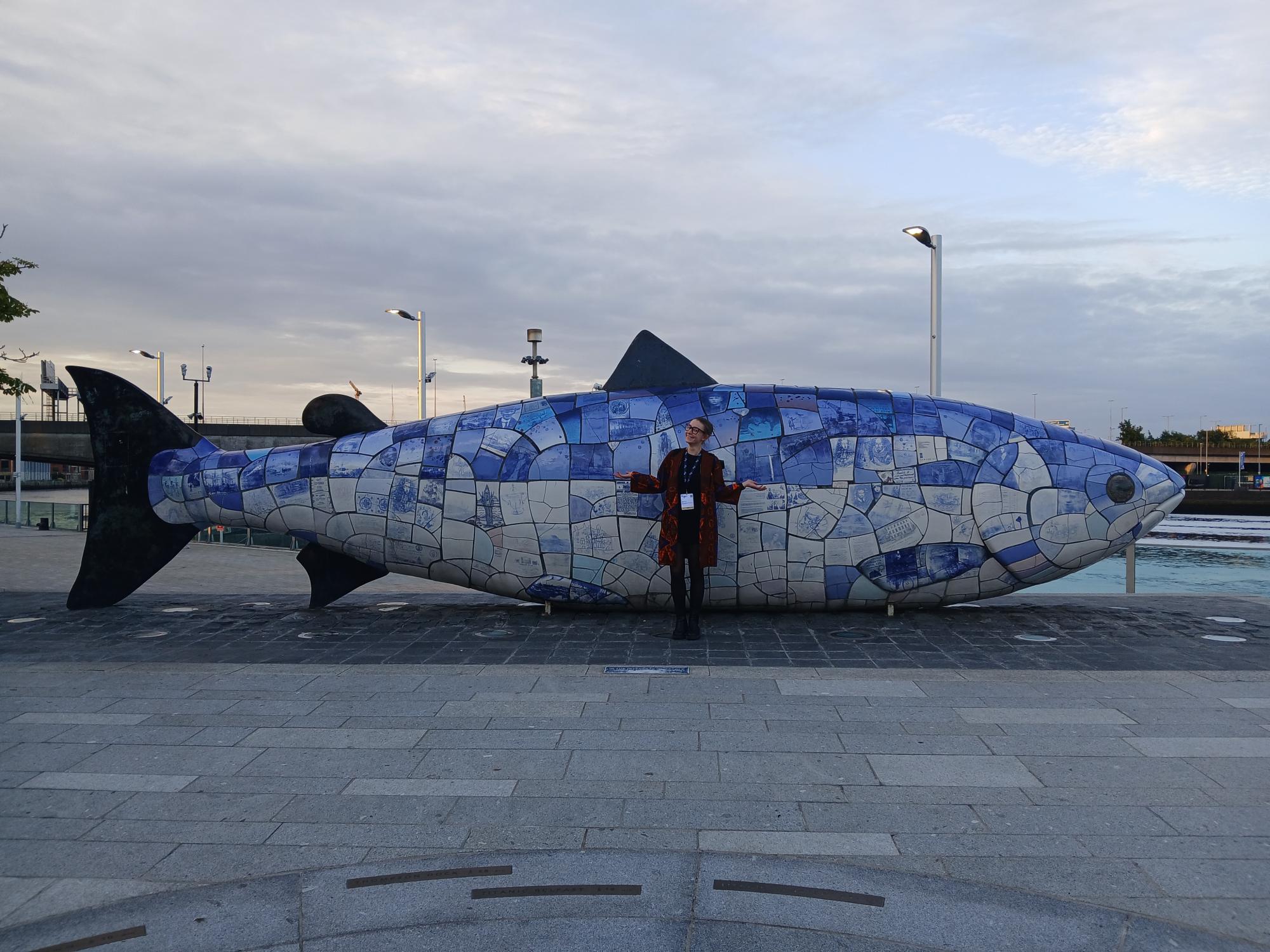So What? The Trials and Tribulations of Finding Your Scholarly Identity
Presenting at conferences can be a good way to work on transforming your niche expertise into a more comprehensive scholarly identity.

Written by Anna Zech, Photo credit: © Anna Zech (Belfast - British International Studies Association 2025 Annual Conference)
There are many tangible milestones in a PhD journey, from passing your upgrade – the confirmation after a year or two of work that you have a solid project that merits completion – to your viva, where you defend your completed project. While we need to mark such distinct moments of evaluation for practical reasons – to make career progression more easily comparable and understandable – a more fundamental and less easily measurable process is underway as you work on your PhD. Day by day, reading by reading, line by line, you slowly move from discovering to situating yourself in the literature and finding your own identity as a scholar.
Concretely, this means understanding and conceptualising clearly what you are really interested in. Some of us may focus on a specific empirical case/object or methodological approach for extended periods of our careers. Others are driven by broader questions that can be explored across different empirical cases and using different methods. As an early career researcher, it is natural and normal to start out with a rather niche expertise, focusing on your specific empirical case and/or methodology. As you progress through your PhD journey, you will slowly realise how your project fits within a broader and more long-term research trajectory that you may want to foster throughout your career. Of course, as often in life, compromises will have to be struck as external factors such as limited funding, research trends, publication pressures, and your ability to move and connect with like-minded scholars will inevitably influence this journey.
While this is all terribly abstract and there is no one way of supporting this process, I think that going to a couple of different conferences can be very helpful. Doing so will help you perfect your branding around your very niche project whilst testing out how to relate this to scholars who may work in fields that are slightly different from yours. This is important not only because it will help you clarify what you are really about in trying to communicate your project to others, but also because, for every grant, job, and prize that you will apply for, more often than not, a diverse group of scholars will evaluate your work. It is therefore essential that you manage to connect with your peers. This is, of course, also a first step to a much more difficult route, which is connecting to a non-scholarly public.
Over the course of my PhD journey, and thanks to the generous MSCA-DN funding, I have had the chance to attend several different workshops, universities, and conferences. Smaller and more focused (local) workshops with people from your area of research may be very useful for you to fine-tune your work, further define your niche, and explore future possibilities for collaboration. It is at bigger conferences, however, in my case, SASE, CES, and BISA, where you can gain an understanding of how your work may fit into the broader scholarly landscape. Such conferences can function as a sort of crash course on the current debates in your field and help you understand which literature, scholar(s), or departments you may want to explore further.
To decide which conference(s) you may want to attend, it is a good idea to ask your colleagues for their staples and peruse some of the more recent past conference programmes to understand the kind of research and scholars the conference attracts. Happy conferencing!
